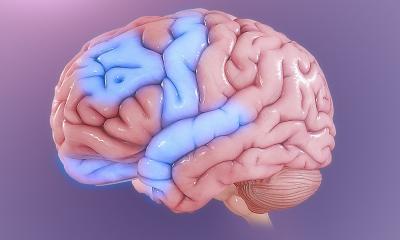Image source: Unsplash/Andre Guerra
News • Nature vs. nurture
Oh! Are our emotional vocalisations learned or innate?
Are emotional expressions shaped by innate specialised mechanisms that guide learning, or do they develop exclusively from learning?
In a classic ‘nature versus nurture’ study, social psychology researcher Disa Sauter from the University of Amsterdam explores whether people can recognise emotions from the sounds deaf people make when they express their feelings. Her research was now published in the American Psychological Association’s journal Emotion. To answer the question, Sauter set up an experiment. The first step was to record nonverbal vocalisations like screams, sighs, grunts and laughs. The vocalisations were produced by two different groups of people: eight congenitally deaf Dutch individuals, all with severe or profound hearing impairment, and a matched set of hearing individuals. The deaf subjects were given instructions in sign language by a deaf assistant. The hearing individuals produced vocalisations of the same set of emotions: anger, fear, sadness, disgust, surprise, amusement, relief, achievement/triumph and sensual pleasure.
The next step was to take these recordings and see if people with the ability to hear would be able to identify the emotional expressions. The vocalisations of both the deaf and the hearing individuals were played to hearing people using an audio track. The listeners could select one of the emotion categories depending on which emotion they thought the vocalisation expressed.
The deaf individuals have had no opportunity to learn from hearing other people’s (or their own) vocalisations. Therefore, if hearing listeners could correctly identify the emotions from their expressions, this would mean that the link between emotions and vocalisations is at least partly innate. The researchers collected recognition data in order to test whether the information in the deaf vocalisations would allow listeners to identify the emotional state the producer was expressing.
Recommended article

News • Psychiatry
Leonardo da Vinci: pure genius or ADHD?
Professor Marco Catani suggests the best explanation for Leonardo da Vinci's inability to finish his works is that the great artist may have had Attention Deficit and Hyperactivity Disorder. Leonardo da Vinci produced some of the world’s most iconic art, but historical accounts of his work practices and behaviour show that he struggled to complete projects. Drawing on these accounts, Professor…
Seven of nine emotions recognised
For the vocalisations produced by deaf individuals, seven out of the nine emotions were recognised at better-than-chance levels. This shows that emotional information was preserved in non-verbal vocalisations of many emotions even though there was no opportunity for the deaf individuals to learn them through hearing. The deaf vocalisations of anger and achievement/triumph were not recognized at better-than-chance levels. Consistent with previous work, the emotional vocalisations produced by hearing individuals were well recognised for all emotions.
The question of whether individual learning can fully account for human emotional signals is a hotly contested issue that is crucial to understanding what emotions really are. Sauter: ‘The results show that while we certainly do learn from hearing the vocalisations of others (and ourselves) over our lifetime, it seems that for many kinds of vocalisations this kind of learning isn’t strictly necessary for them to develop. If emotions exclusively depended on individually learned associations, we would be able to understand them by mapping out the specific environmental mechanisms. But if we have some predisposition for the development of emotional expressions, insights into the evolutionary forces and mechanisms that have shaped these systems will provide an important complementary route to understanding human emotions.’
Source: University of Amsterdam
15.09.2019










